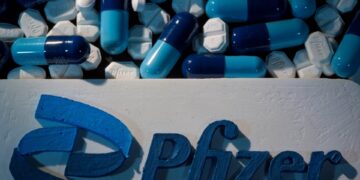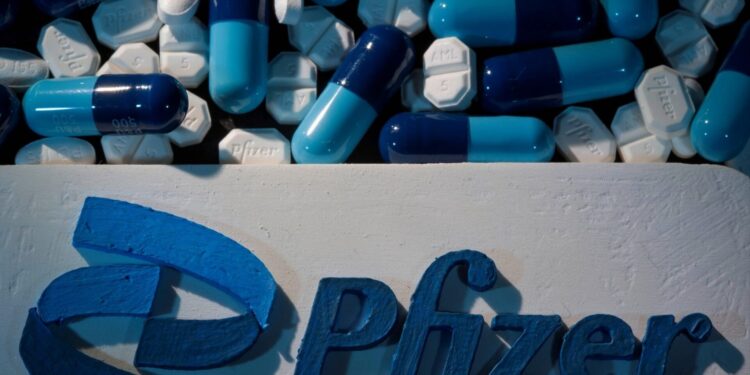By John Ikani
Pharmaceutical giant Pfizer on Friday announced that its experimental Covid pill regimen, when taken shortly after symptoms develop, dramatically reduced the risk of hospitalization and death by 89%.
The trial’s results suggest that the oral drug surpasses Merck & Co. Inc’s pill, Molnupiravir, which was shown last month to halve the risk of dying or being hospitalized for COVID-19 patients at high risk of serious illness.
The pill with the brand name Paxlovid, has been touted as a promising new weapon in the fight against the pandemic and could secure US regulatory approval by the end of the year.
President Joe Biden said the US Government has secured millions of doses of the Pfizer drug.
“If authorized by the FDA we may soon have pills that treat the virus in those who become infected,” Biden said. “The therapy would be another tool in our toolbox to protect people from the worst outcomes of COVID.”
Pfizer did not detail side any effects, but said adverse events happened in about 20 percent of both treatment and placebo patients. Possible side effects include nausea and diarrhea.
The Pharmaceutical giant is in discussions with 90 countries over supply contracts for its pill, Chief Executive Officer Albert Bourla said in an interview.
It is also holding discussions about a license for generic manufacturing of the pill for low-income countries, Unitaid’s Medicines Patent Pool said in a statement.
Even with the potential offered by the Pfizer and Merck pills, preventing COVID-19 infections through broad use of vaccines remains the best way to control a pandemic that has killed more than 5 million people worldwide, including more than 750,000 in the United States, according to infectious disease experts.
“Vaccines are going to be the most effective and reliable tool that we have in this pandemic,” said Dr. Grace Lee, professor of paediatrics at Stanford University School of Medicine. “These oral medications are going to augment our ability to really reduce the risk of severe disease, hospitalization and death, which is huge, but it won’t prevent infection.”



































